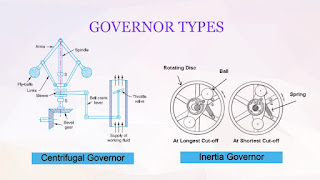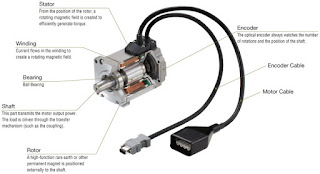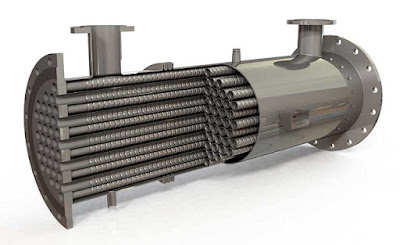Engineers are the inventors, designers, analysers and builders of our modern age. They create the machines, structures and systems we use on a daily basis, most of the time without thinking twice about the work that went into them. The constrains of physics, the confines of the manufacturing technology of the modern age, the limitations imposed by current material properties, requirements in terms of health and safety and cost: all of these are things that engineers must take into account when designing whatever it is they're working on. Luckily, engineers are trained to recognise and solve these problems; but in order to recognise and solve them, engineers have to have a very particular set of skills, skills acquired over a long career, skills that make engineers a nightmare for anything these problems might throw at them. Here are the Top 10 Characteristics of Great Engineers listed below.
1. Teamwork
Teamwork drives the successful completion of a project. No one can complete a project on their own; they need others to contribute. There are functions that can be performed individually, but more often than not, an engineer will be part of a bigger team, and must be able to work well therein.
Courtesy and tact goes a long way in building team trust. Project details are often presented to managers and customers, and these interactions may become confrontational. An engineer must understand everybody’s position and should not feel attacked, keep team members informed, and always present facts accurately.
2. Continuous learning
Technology and methodologies are constantly changing, and nowhere is this truer than in engineering. A successful engineer is able to keep abreast of the latest technological updates and capable of delivering the best value and quality work.
Engineers are curious by nature. They are interested in understanding how things work. This gives them a natural aptitude for learning and allows them to continue building their knowledge. In modern times technology changes quickly, so it is critical to constantly learn and stay up to date. Never assume you know everything.
3. Creativity
It may sound clichéd, but successful engineers have an innate ability to 'think outside the box'. The engineering industry runs on the ability to creatively solve problems. Engineers able to bring passion, creative solutions and big ideas to the table are more valuable as businesses depend on creativity to efficiently resolve problems or improve the efficiency of existing systems and processes. Always be attentive to practicality when proposing creative solutions.
4. Problem solving
Any project, no matter how big or small, will face problems. An engineer must be able to effectively address these as they arise. They must meticulously study the problem, fully understand the impact it has on the project, and then apply their analytical skills in a methodical and efficient way in order to identify the root cause.
To effectively solve problems an engineer must also have the ability to truly listen to the problem 'owner'. By attentively listening an engineer is able to fully comprehend what the problem consists of and means any available solutions are made from a well-informed standpoint.
5. Analytical ability
The ability to effectively solve problems goes hand-in-hand with the ability to properly analyse problems. Engineers are required to think analytically in order to create solutions. Analysing a project scope or product specification ensures that an engineer fully understands the relevant requirements, and efficiently applies resources to achieve the optimal outcome. Various methodologies may have to be tested before committing resources to guarantee a successful solution.
6. Communication skills
Communication is more than reading, writing, speaking or listening. For an engineer it means the ability to not only understand technical complexities, but the ability to succinctly and effectively translate technical jargon into layman’s terms without patronising others.
Engineers communicate with people at many different levels, from unskilled workers to directors. The ability to communicate in a respectful, clear and concise manner is critical to ensure that the core message is effectively relayed.
7. Logical thinking
To fully comprehend complex systems an engineer must understand all aspects of the system. An engineer must know how the system works, what can go wrong and how to fix it. This requires an ability to think logically, and evaluate and understand each element that makes it up.
Successful engineers are naturally curious and always looking for ways to make things better. They have to be able to analyse an existing system, understand how the different pieces work individually and as a unit.
8. Attention to detail
Successful engineers pay meticulous attention to the smallest of details. They understand that the slightest error may cause a structure to fail, a system to malfunction or software to glitch. The smallest error can cost a significant amount of money or, in some cases, be fatal.
Complex projects may have a large number of steps to complete and having one tiny thing out of place may delay an entire project. Being detail orientated during the planning and development phases is pivotal for overall success. Successful engineers know that their success depends on their ability to control the details. Never assume something is too small or insignificant to care about.
9. Mathematical ability
Software has replaced almost all of the complex derivative equations engineers used to do manually. Even though engineers are no longer required to do these complex calculations themselves it does not mean they do not have to possess excellent mathematical skills.
Engineers must be well-versed in trigonometry and calculus in order to use software packages and be able to interpret the results derived from them. They must be able to understand the type of calculations required to ensure the correct type of simulation is performed, and that models are correctly defined when performing simulations.
10. Leadership
Leadership ability encompasses many of the characteristics already mentioned on this list. But being a leader is far more than this. It also requires excellent interpersonal skills and an ability to inspire and motivate others to drive a team to achieve success.
A successful engineer must have excellent mathematical skills, think logically and solve problems. But they also need well-developed 'soft skills' so they can smoothly perform non-technical duties. People who are charismatic, well-spoken and friendly are normally well-liked, and are able to easily garner support.















Comments
Post a Comment